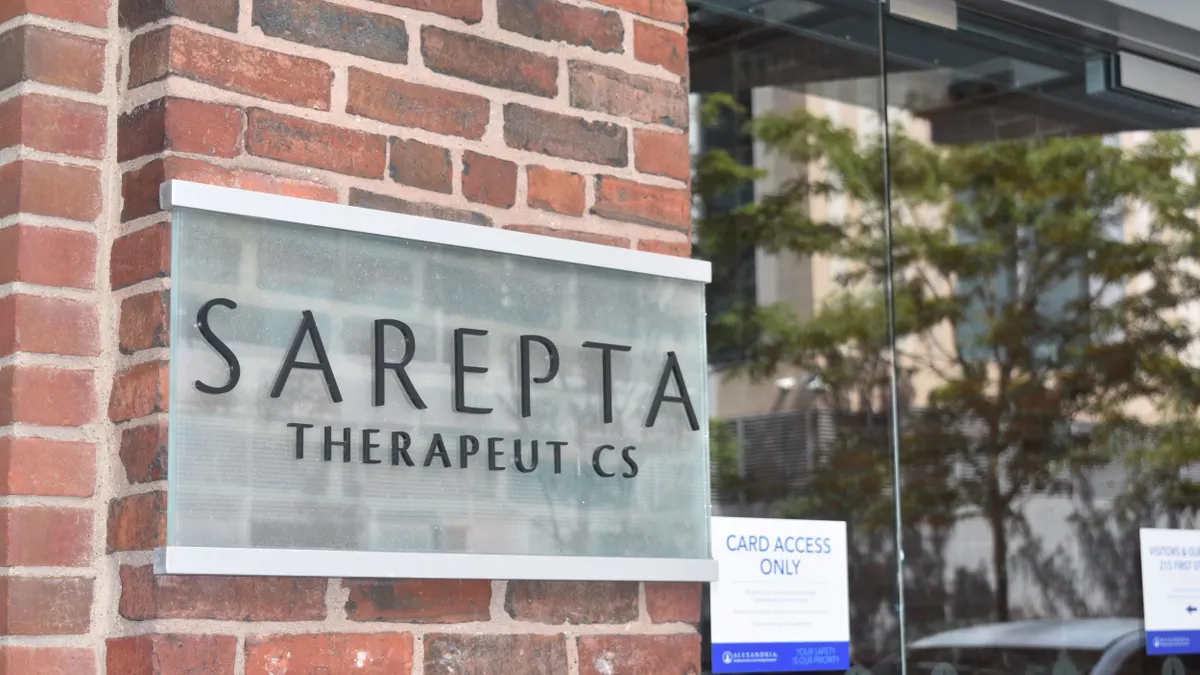Another person treated with a Sarepta Therapeutics gene therapy has died, compounding concerns about the safety of the company’s genetic treatments.
Sarepta on Friday confirmed the death of a 51-year-old patient with limb-girdle muscular dystrophy who died after treatment with the company’s experimental SRP-9004 therapy in a Phase 1 study. Earlier this year, Sarepta reported the deaths of two teenagers with Duchenne muscular dystrophy who received its marketed gene therapy Elevidys.
The new death occurred last month and has already been disclosed to regulators, study investigators and the patient community, a company spokesperson said in an email. The company had not shared information on the patient’s death during a restructuring announcement and subsequent conference call it held Wednesday, however.
“We prioritized disclosing to clinicians, regulators and the community. It is not a new safety signal and occurred in a trial for a program that we are not moving forward,” the spokesperson said, referring to SRP-9004.
On a Friday call, CEO Doug Ingram claimed the event "was neither material nor relevant" to the news disclosed Wednesday.
Sarepta confirmed the patient death in an email to BioPharma Dive after this story was published based on reporting by BioCentury and other outlets.
As with the deaths of the two Duchenne patients, the man with limb-girdle died after complications from acute liver failure. Liver damage is a known risk of gene therapies that, like Elevidys and SRP-9004, are built around a type of engineered virus. Researchers have long expressed concern the risk may be greater for gene therapies administered at high doses, which are needed to treat neuromuscular conditions like Duchenne and limb-girdle.
The two deaths related to Elevidys were the first reported among more than 900 people who had been treated with it in clinical testing and commercially as of June. Sarepta is working on a regimen of immune-suppressing drugs to help manage the safety risks in older Duchenne patients who can still walk, and plans to soon share its findings with the FDA. In the meantime, the agency placed a “black box” safety warning on Elevidys’ label for the risk of liver failure.
However, Friday’s news suggests Sarepta’s other gene therapy work may be associated with similar safety risks. Elevidys and SRP-9004 both use the same delivery tool, a modified virus dubbed AAVrh.74, to deliver genetic material into the body. While Sarepta plans to shelve SRP-9004 as part of its restructuring, the company intends to soon seek approval of another limb-girdle muscular dystrophy treatment, SRP-9003, that’s based on the same modified virus.
Like Duchenne, limb-girdle causes progressive loss of muscle function and potentially early death from other health complications. However, Duchenne is “generally more severe” than limb-girdle, making the balancing of treatment risks and benefits for the two conditions very different, Leerink Partners analyst Joseph Schwartz wrote in a Friday note to investors.
The death “could lead to greater scrutiny of SRP-9003’s safety profile” and “affect commercial interest, if approved,” added William Blair analyst Sami Corwin, in a separate note. It may also "amplify patient hesitancy to use commercial Elevidys and increase investor distrust,” since Sarepta didn’t disclose the event earlier this week, she added.
On Friday’s conference call, analysts criticized Sarepta’s decision to hold off informing investors of the news earlier this week. Several even pressed Sarepta on whether there were any other unreported life-threatening events or deaths that had occurred in testing of the company’s gene therapies, which Sarepta denied.
Ingram added that SRP-9004, as well as other limb-girdle gene therapy programs, were shelved to help ensure Sarepta remained financially viable, not because of “this or another event.”
“If there was a material change in the safety signal of one of our marketed therapies, we would disclose that publicly,” Ingram said. “This event occurred in the context of a clinical trial for a program that, for independent reasons, was ceased.”
Ingram noted that the FDA has had this information for weeks, and hasn’t changed its position regarding Elevidys. Earlier this week, Ingram said “more dialogue is required” with the FDA about Elevidys’ future use in non-ambulatory Duchenne patients. Sarepta paused shipments to those patients in June.
Sarepta shares, which has jumped higher on news of the restructuring, fell by double digits in early trading Friday.
Editor’s note: This story has been updated with confirmation and comments from Sarepta.














